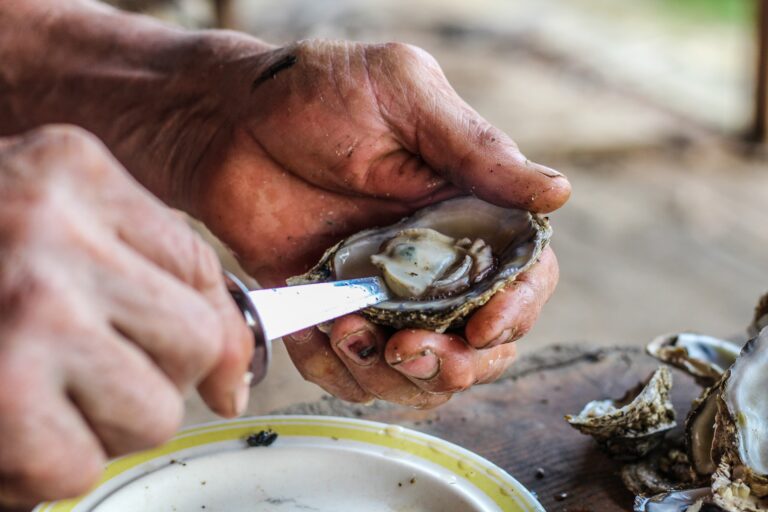As you plan, or attend, the remainder of your holiday feasts this season, be sure to keep safe food handling in mind and stay updated on recalls and alerts. It is the time of year that many people tend to serve and eat special foods which they don’t normally consume, so may not be aware of all the related food hazards.
One such area of concern is raw foods, particularly oysters. Safety alerts and recalls, unfortunately, tend to be fairly common with oysters, and these are likely to further increase as climate change continues to cause warming weather and warming waters.
One current FDA alert is for oysters contaminated with Campylobacter jejuni, which can cause illness if eaten raw, and potentially life-threatening illness in people with compromised immune systems. While Campylobacter has not been a common pathogen related to oysters, it is a common contaminant in many shellfish, with a presumed cause being feces from gulls feeding in the growing or source waters. Food containing Campylobacter jejuni may look, smell, and taste normal, so awareness of the risks of consuming raw oysters, and other shellfish, is important – especially for the immunocompromised.
While there also has been a saying that it is only safe to consume raw oysters during months with an “r” in their names, this can be less accurate today than in the past due to the increased prevalence of Vibrio bacteria and other pathogens in warm waters. Vibrio is not a new threat, but experts are citing climate change as a cause of its spread, as it grows in warm water. With 2023 on track to be the globe’s warmest year on record, the high temperatures and seasonal patterns such as El Niño, also cause water temperatures to rise, increasing the potential for Vibrio contamination as well.
TAG wishes you all the happiest – and healthiest – of holidays!
Infectious Disease News:
- WHO released their global health achievements for 2023 – this year marks their 75th year of being an organization and many different accomplishments. 2023 was a record year for disease elimination, with several countries eliminating infectious diseases as a result of collaborative actions by countries and health partners. WHO recognized the great deliverance of vaccines worldwide, specifically mentioning COVID and dengue. WHO was able to respond accordingly in time of emergencies – major earthquakes and war. To read through all of the highlights, follow this link.
- There was a large and surprising spike in dengue infections globally this year that represents a potentially high public health threat to countries that previously were untouched. The rise is suspected to be linked to global warming and infected mosquitoes being able to thrive in more countries.
- WHO has encouraged countries in South-East Asia Region to strengthen surveillance and for people to take protective measures in view of the increasing numbers of cases of respiratory diseases, including COVID and influenza. JN.1, a subvariant of COVID has been increasing in number globally. JN.1 has been found in many different countries, including India, China, UK and the US.
- Many Canadians had rushed to get their COVID vaccines in the beginning of the pandemic, but now the latest numbers show that only about 15% of Canadians have received their updated vaccine this fall. The vaccine covers current variants, including the newly flagged JN.1.
- The WHO has prequalified a second malaria vaccine, R21/Matrix-M, which clears the way for countries and groups to buy the vaccine for a broader rollout after the WHO recommended the vaccine in early October.






